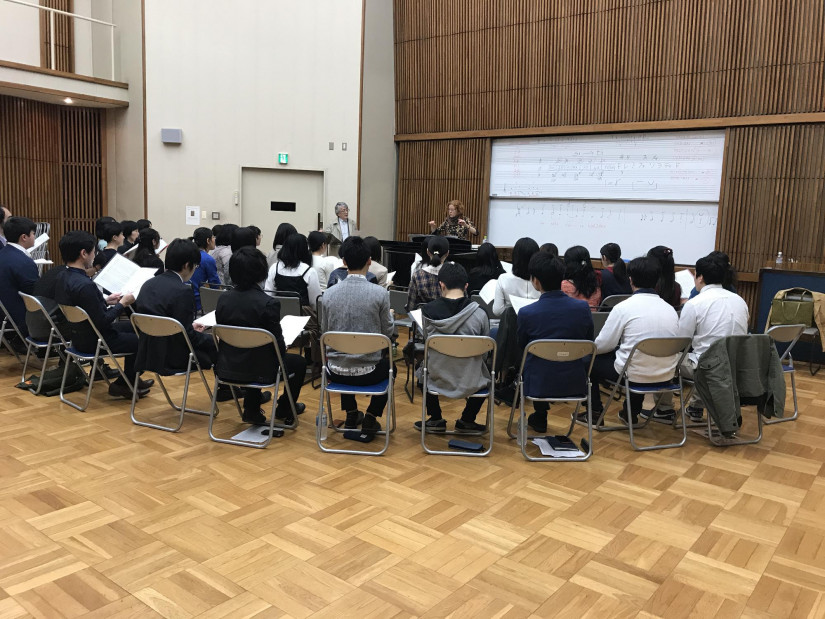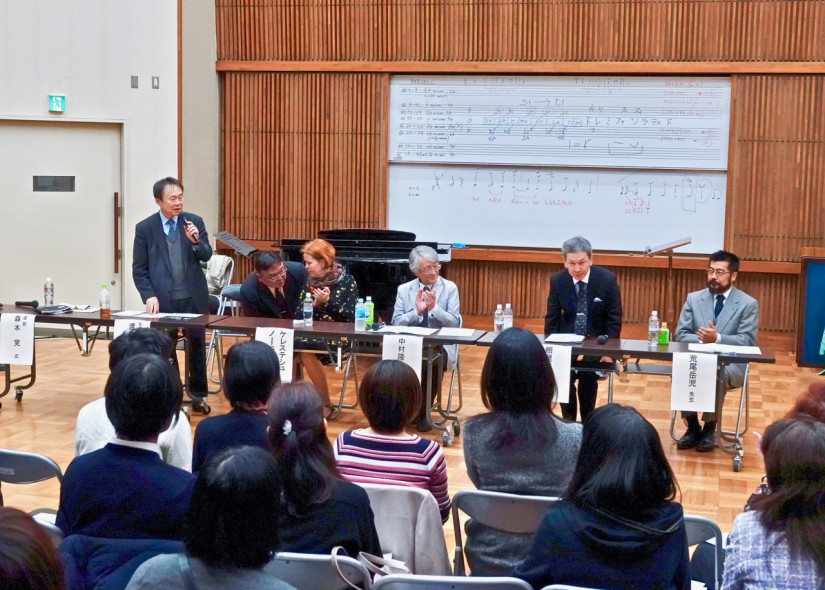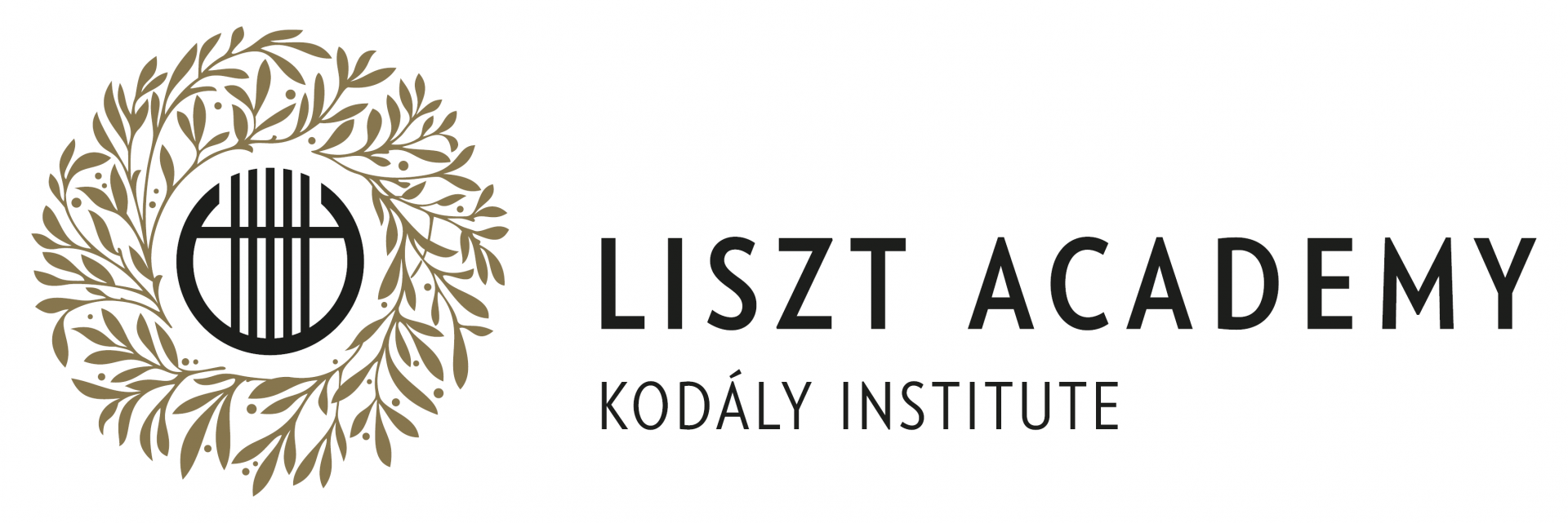Our Teachers' Kodály Seminars Around the World - Part Two
As a continuation of last year's successful programme, teachers of the Kodály Institute, with the support from the Hungarian Ministry of Foreign Affairs and Trade and the assistance of local embassies and cultural institutions, repeatedly held workshops and concerts in the past few months from New-Zealand to Chile, from Norway to the USA, from Japan to Portugal.
Our two-part report summarises the experiences.
Part Two – Countries outside europe
North American Tour - László Norbert Nemes
The first stop of the tour was at the New York University, Steinhardt School, where László Norbert Nemes held a workshop entitled "Rethinking of Kodály-Inspired Pedagogy in the 21st-century". The content of the course was built around the results of the joint research of the Kodály Institute of the Liszt Academy of Music and the Research Centre for Natural Sciences of the Hungarian Academy of Sciences. It explored the possibility of the organic connection of singing and listening accompanied by rhythmic movement and the problems of the reception of non-tonal music material. The workshop had 32 participants of mixed age; a connecting point between them was that all of them were students or alumni of the NYU Kodály seminars. The lecture was part of the High Note Hungary event series organised by the Hungarian Cultural Centre in New York, the aim of which is strengthening the pivotal role of the Hungarian classical music in the American metropolis.
The second stop of the tour was in the State of Indiana, at the Indiana State University (ISU), where the three workshops originally planned were amended in the last minute with a fourth lecture within the framework of the Music and Culture Festival (https://www.indstate.edu/cas/music/events/imacf). Its topics were related partly to Kodály's music pedagogical heritage and partly to the most recent developments of the Kodály Institute's professional methodology.
1. Kodályian Heritage of Safeguarding Traditional Musical Culture in Hungary and the Creation of a New Modern Classical Style
2. Singing, singing, singing - introduction to musicianship training according to Kodály’s music pedagogical concept
3. The development of two new models for teaching music in the classroom
4. Music & Movement – the development of music listening competencies
The workshop had 65 participants, partly university students, partly teachers from different schools. The sessions had an average of 65 participants, partly university students, partly teachers from different schools.
The third and last stop of the tour was at McGill University Schulich School of Music in Montréal. Norbert László Nemes held lectures for the PhD and master’s degree students of the school's choral conducting programme.
"Let the Whole World Rejoice!" Choral Music Education, The Kodály Perspective: On his first teaching day he presented the main stylistic characteristics of Kodály's composition workshop through Pange lingua, a composition for organ and mixed choir as well as some selected works of Kodály’s singing exercises through which he also presented how musical reading, secure intonation, vocal musical style knowledge and polyphonic singing skills can be improved.
On the second teaching day, Béla Bartók's selected choir compositions and parts of his oratorio Cantata Profana were analysed, which was followed by the review of the Hungarian choral literature after 1945, mostly through medium-difficult masterpieces without musical accompaniment in Latin and English language, which are easy to adapt in the international practice. The tour was organised in close cooperation with the Embassy of Ottawa and the Consulate General of Chicago by the Hungarian Cultural Center in New York.
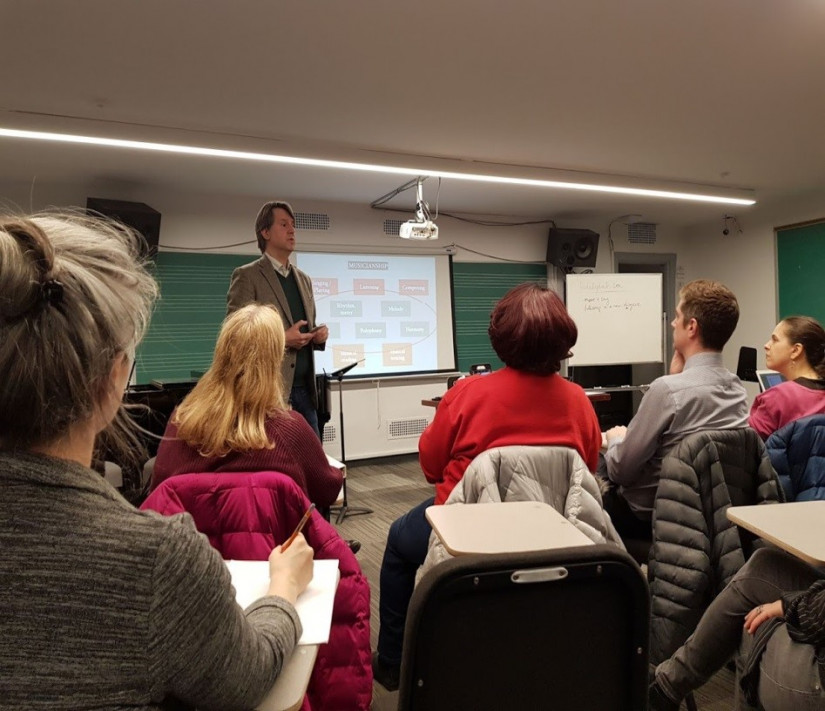
In Australia, László Norbert Nemes, Katalin Körtvési and Árpád Tóth taught at the Brisbane summer academy, successfully running for many years organised by the Cuskelly College of Music and the Sound Thinking in January 2019. All three of them taught solfege, choral exercises, conducted, but for target groups independent from one another. https://cuskellycollegeofmusic.com/documents/summerschool2019.pdf
In New-Zealand, Réka Csernyik, a Kodály expert living in Australia, held an introductory course on Kodály music pedagogy for local musicians, music teachers. The course was organised by Kodály Aoteaora and Project Prima Volta in conjunction with The Cuskelly College of Music.
Two countries were affected in South America, Chile and Argentina. Thanks to the persistent work of the embassies and Kodály Societies, both countries organised a rich programme at various locations.
Zsuzsanna Gráf and Spanish resident Katalin Hajnóczy first held a beginner and an advanced level Kodály seminar and a choral conducting course for the students of the National University of Arts in Buenos Aires and at the Salvador Artistic University. They also gave a lecture in the organisation of the Argentinian Kodály Society, and the Embassy also included an irregular program, when they visited a prison where they held a workshop for the convicts within the framework of a musical forum. https://buenosaires.mfa.gov.hu/news/kodaly-szeminarium-2019
Considering the significant number of the Hungarian minority, the local Hungária Association organised a lecture/presentation titled "Your Flock is Still Alive". The programme continued in San Juan, where a three-day workshop was held at the San Juan University ended by a beautiful choral concert conducted by Zsuzsanna Gráf.
In Chile, Lilla Gábor held three-day-long training courses at the music faculty of the Pontificia Universidad Católica in Valparaísó and the pedagogical faculty of the Universidad Católica Cardenal Raúl Silva Henríquez in Santiago. The Santiago seminar ended with a splendid concert and an Embassy reception.
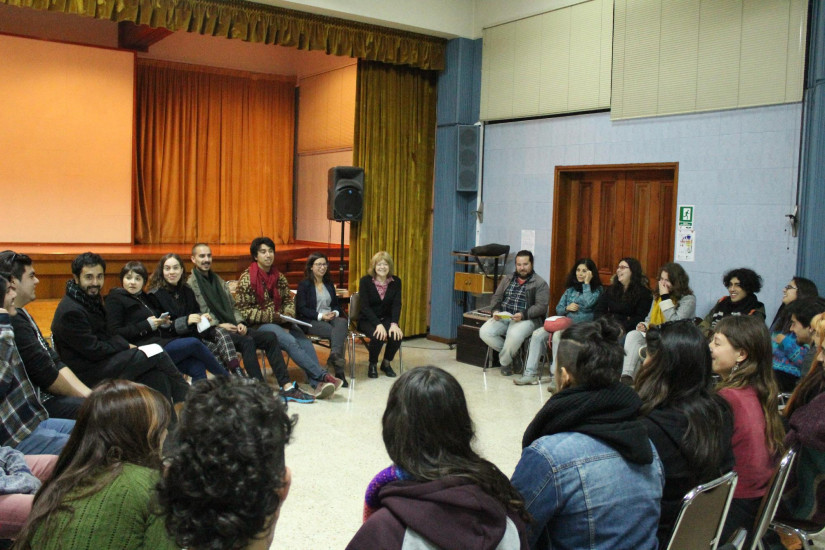
Asian Tour - Nóra Keresztes
The stops of the Asia tour were Ho Si Minh City, Hong Kong, Macao and Tokyo.
The Ho Chi Minh City University of Music has been long waiting to get first-hand insight from the Kodály Institute teachers into the Kodály philosophy; at the two-day course of Nóra Keresztes, they had many chances to do so. A two-day course for music teachers and guides followed, organised by Wah Yan College, Kowloon in Hong Kong. Thanks to the efficiency of the organisation, some time had been spared for a training course at the local elite university, Moon Chun Memorial College in Macau.
Shortly after this at the Tokyo University of Art (Geidai) in Tokyo, a multiple-day event had been organised together with the University and the Japanese Kodály Society, which included a course, four demonstration chorus rehearsals and a scientific symposium. One of the two choirs involved was a mixed one of the high schools from Omiya, Saitama Prefecture. The other one was an adult mixed choir. The topic of the scientific symposium was about the Kodály method and the relative solmisation, their usage in Hungary and Japan. The speakers were Nóra Keresztes, Nakamura Takao, president of the Japanese Kodály Society, and two composer-teachers of the Tokyo University of Art. The discussion was hosted by the great pianist Kenji Watanabe, who is currently a piano professor at Geidai and a former student of the Liszt Academy of Music. Approximately 100 people visited the public rehearsals and symposium. A particularly positive impact of the event was that after last year's Kodály Seminar and concert, which also took place at the Tokyo Art University and was also co-organized by the Japanese Kodály Society, the university announced the event as "Kodály Seminar II", emphasising its continuity.
The event formed part of the celebrations for the 150th anniversary of establishing the Hungarian-Japanese diplomatic relations.
